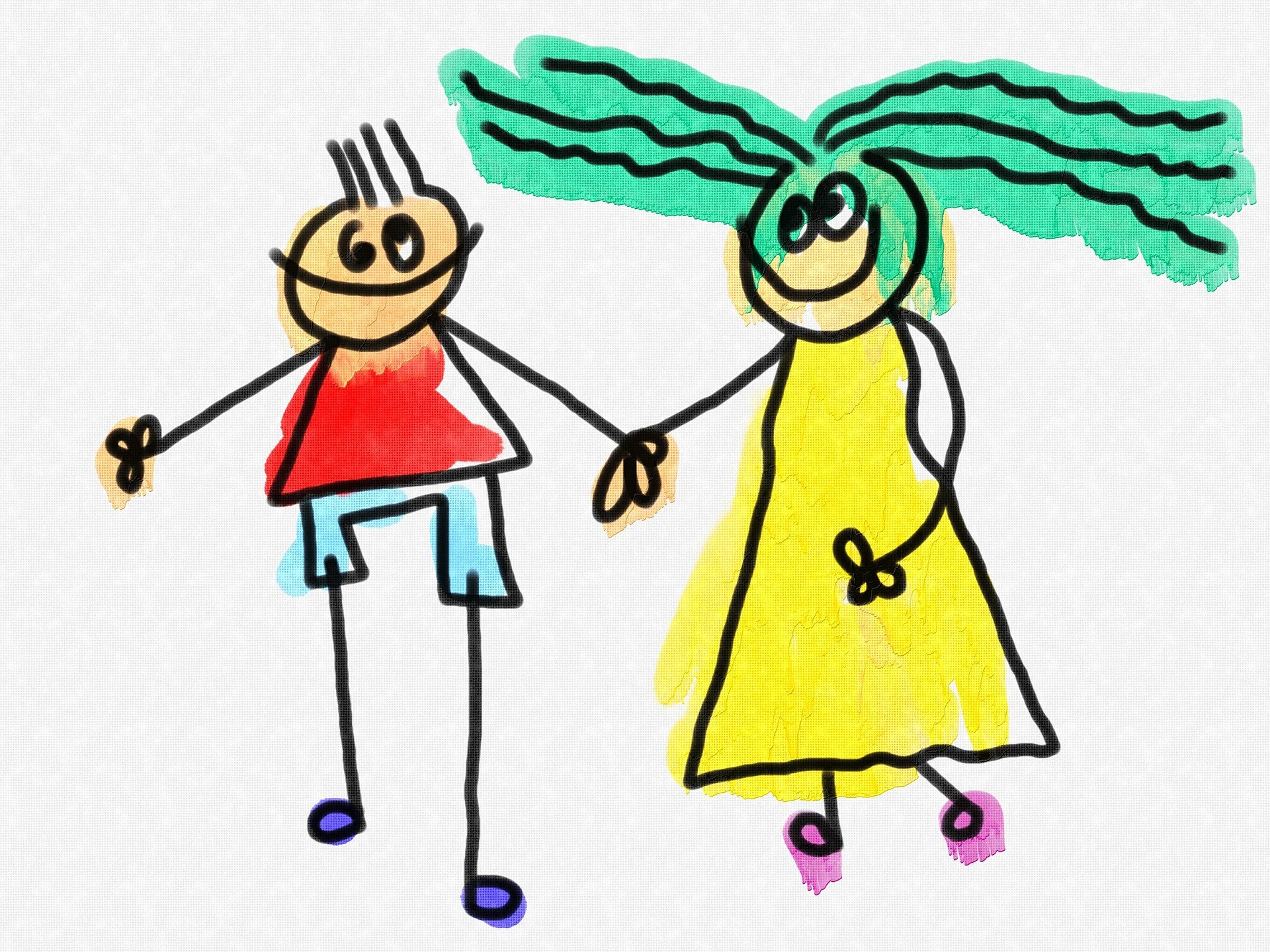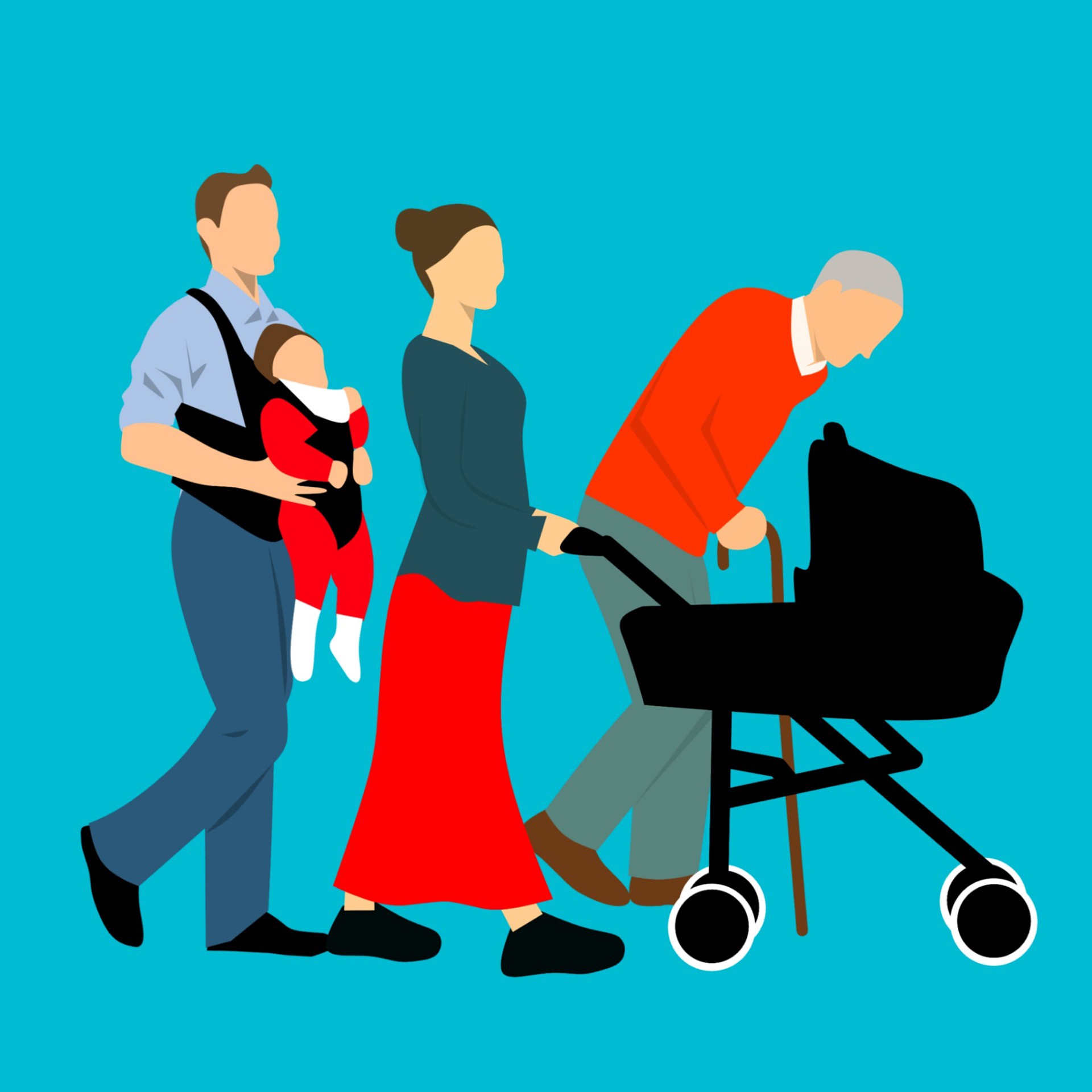Watching Adult Children Stumble & Fall
 https://pixabay.com/en/users/A3DigitalStudio-3139677/
https://pixabay.com/en/users/A3DigitalStudio-3139677/
All parents of adult children know that parenting does not stop when your child or children reach the magic age of 18.
It can often get more complicated when they are adults.
A parent?s heart and mind are still actively engaged with their child no matter how old they are, or where they are living.
A HuffPost article, ?The 6 Things You Shouldn?t Say To Your Adult Child? highlighted that ?Any tension between parents and adult children can often be felt more strongly by a parent, as parents are often more emotionally invested.?
How often do you hear a parent say, ?You won?t understand until you have children of your own.?
Ruth Nemzoff, author of ?Don?t Bite Your Tongue: How to Foster Rewarding Relationships With Your Adult Children,? makes the point that:
?We fantasize that we can say anything we want to our kids, but the truth is, we never could.?
A good rule of thumb is: If you would not say the comment to the person you admire the most in the world, as you would not wish to offend or upset them, then DO NOT make this comment to your adult child.
Some parents make thoughtless and unintentionally hurtful comments about such things as their adult child?s
- weight
- spots or zits on their face
- frequency (or not) of calling you, coming to see you
- partner (expressing dislike)
- housekeeping deficits (dirty dishes/clothes/untidy house)
- relationship status
- lack of children
Most of these comments would be considered intrusive, an invasion of privacy and most of our friendships would not survive negative opinions expressed in these areas.
Something that all parents of adult children NEED to let go of is guilt tripping. Do not guilt trip your adult kids and do not guilt trip yourself. Why?
In the article, ?LETTING GO AND THE ART OF PARENTING ADULT CHILDREN? Becki Cohn-Vargas says:
?Guilt-tripping leads to the ?r? word when it comes to adult children, resentment.
Just like worry and advice-giving, guilt-tripping leads to no good.?
?We can also guilt-trip ourselves.
My goal is to not feel guilty and blame myself for anything my children do or don?t do.?
Keeping these simple recommendations in mind can go a long way towards minimizing and preventing unnecessary conflict with your adult child or children.
1. How do you know when it is okay to advise your adult child?
 https://pixabay.com/en/users/mohamed_hassan-5229782/
https://pixabay.com/en/users/mohamed_hassan-5229782/
Jane Isay in her book, ?Walking on Eggshells: Navigating the Delicate Relationship Between Adult Children and Parents,? advises parents to ?keep their mouth shut and their door open? (although not too wide, lest they move back in).
Why?
- Advice, freely given (and not asked for) is often perceived as criticism.
- It does not matter if you feel your advice would be ?helpful? to them, do NOT give advice you have not been asked to provide.
If you cannot help yourself during a conversation where they have brought up issues or worries they may be dealing with, phrasing advice in terms such as, ?Have you ever considered?.. or, ?Some people have found ?..? may be less likely to be taken as criticism or a put-down.
Phrased like this, it is also less likely to be taken as if you have no confidence in them being able to manage their affairs.
If you constantly give unsolicited advice you may find your adult child will contact you less, and withdraw as nobody likes to feel like they are incompetent or that their parent is hovering and intrusive in their private life.
Be sensitive to how your advice may be perceived. If in doubt do NOT advise unless you are asked what you think.
Or ask, ?Would you like me to tell you what I think?? And then listen to their answer if they say, ?No.?
?Your kids require you most of all to love them for who they are, not to spend your whole time trying to correct them.? ~ Bill Ayers
2. What if an adult child does not seem to be behaving maturely?
 https://pixabay.com/en/users/Rilsonav-1824615/
https://pixabay.com/en/users/Rilsonav-1824615/
According to the article, ?Still advising your grown kids? Time to stop? author Michael Segell states:
?So the best you can do is accept each other for who you are.
You?re basically saying: Welcome to the adult world, honey. I love you even though you?re not what I prayed you would be.
And they?re saying: Thanks, Mom and Dad. You?re a little annoying but you?re my parents. And I love you, too.?
According to the article, ?5 Principles for Parenting Problem Adult Children? author Dana McCain makes the very valid point, that if an adult child is continually making bad decisions and wanting you to ?bail them out? but resents and does not want unsolicited advice or criticism then it is good to remind them it does not work like that.
If they want your help as they have behaved immaturely, then they are going to get your advice. It is a trade-off.
She states:
??they can?t expect you to provide for them, absorb consequences of their poor planning or decision making, or otherwise shield them from the realities of adulthood?
The mantra of parents of adult children should be: you deserve to be treated like an adult, and I deserve a break from parenting a child.?
Sometimes, the best thing we can do as parents is to be there to listen, but let them know that they will have to work it out for themselves. Psychology Today advises parents to ask themselves the following questions:
- Does your child now act entitled to, and demand, things you once enjoyed giving ? car privileges, gifts, perks at home, or rent money?
- Does it feel like you are living from crisis to crisis with your adult child?
- Do you sacrifice too much to meet your adult child?s needs?
- Are you afraid of hurting your child?
- Are you feeling burdened, used, resentful, or burnt out?
If you answered yes, then maybe you are no longer helping but enabling your adult child.
Seeking professional help and support to assist you in setting boundaries and sticking to them could be helpful.
Sometimes the situation may be made more complex by factors like addiction or mental health issues, however, these do not mean there should not be goals, collaboration, and progress towards independence occurring.
One of the best pieces of advice Jeffrey Bernstein Ph.D. gave in his article ?Creating Boundaries with Your Adult Child? was for a parent to ?give themselves time to respond? to a request for help from an adult child who is constantly asking for help.
Waiting 24 or 48 hours, will give you time to think, talk to other adults who may be able to assist and give you time to consider your response so you do not end up in a continual cycle of dependency.
- He suggested asking your adult child ?What are your ideas?? for resolving a crisis.
- He reassured parents that it is also okay for them to say they have changed their minds.
- If a condition for support for an adult child with mental health or addiction issues is that they must be in treatment, then a parent should be able to refuse requests for money if their child is not keeping to the agreement.
?By loving them for more than their abilities we show our children that they are much more than the sum of their accomplishments.? ~Eileen Kennedy-Moore
3. What if your adult child stops having the same values as you brought them up to have?
 https://pixabay.com/en/users/Clker-Free-Vector-Images-3736/
https://pixabay.com/en/users/Clker-Free-Vector-Images-3736/
?YOU WILL ONLY ACCEPT YOUR CHILD TO THE DEGREE YOU ACCEPT YOURSELF? ? Shefali Tsabary
Making their own choices is something that adults do as they find their own identity.
Sometimes the choices of your adult child may not align with your values and ethics.
An adult has a right to autonomy and to believe what they wish. Your child is no exception. These beliefs will generate consequences in their lives.
These differences may be about such emotionally charged issues as religion, sexuality, politics, etc.
Remember that views can change over a lifetime. Just because your child is feeling one way now, may not mean they think that way forever. Or, they may. You (and they) will not know, right at this point.
Your views on some things are no doubt very different to those you held when you were 18 years old.
If you overreact or give ultimatums, you may sever the relationship or irreparably damage it forever.
- Is your relationship significant enough to you to maintain when your adult child may have different views than you?
- Can you negotiate to agree to disagree?
- Can you agree to come together and put your differences aside respectfully and put your relationship before individual opinions and beliefs?
- If your relationship comes first, how will you move forward?
- Where are you able to compromise? What are you not willing to compromise?
- How will this impact your ability to be able to see any grandchildren?
- How will severing this relationship (if that is what you choose to do) impact on your relationships with your spouse, or your other children?
?Often it?s the adjustment of our expectations, rather than reality itself, that?s the hurdle we have to leap.? ~ Shefali Tsabary
4. How can you have healthy financial boundaries with adult children?
 Prawny
Prawny
Financial issues can arise when a parent is perceived by a child as being unfair and inequitable in what money they distribute or give to help one child and not another.
Issues can also arise, if one adult child is always asking for money, and being given it, whereas other adult children who work hard, never ask, and never get given any money.
Remember, there are usually NO secrets amongst siblings. Your kids will always find out what is going on, and then issues may arise.
If adult children perceive favoritism is occurring, this not only could affect their relationships with each other but also with you as their parent.
There is a difference however, in an adult child who is experiencing significant financial difficulty but is doing everything in their power to get out of the situation and to try and help themselves.
Obviously, the loving thing to do if you are in a position to do so would be to assist them.
If your adult child is struggling because they are waiting for the perfect job, or they lack the motivation to help themselves, then experiencing the discomfort that lack of money brings (along with eating canned soup, noodles or bread and nothing else week after week) may provide the incentive needed for them to get themselves together. If you leap in immediately with freshly cooked food and money for meals and paying other bills, then they will never have an opportunity to learn.
Not being able to go out socializing with peers or not being able to participate in other holidays as they cannot pay their way, are all life consequences from choosing not to look for work (any work) that will help them pay their way.
If you honestly feel your child is about to make a financial decision they can ill afford, then a gentle reminder that if it does not work out, you will not be in a position to help them may be all that is needed. Dana McCain wrote that:
?No matter how much it kills you to watch him have to sell the car they love, or lose it to a creditor, keep your hands in your pockets and your mouth shut.
Fewer words and more meaningful action can communicate the message without drowning the relationship in a sea of verbal conflict.?
5. What if you do not get on with your child?s significant other?
 Prawny
Prawny
Not getting along with your child?s chosen partner, is a challenging situation.
Getting on with a difficult daughter or son-in-law can make life extremely difficult and harrowing, especially if you feel like you are always walking on eggshells.
However, you must NEVER criticize your child?s partner.
Criticism will only lead to estrangement. Your adult child will MOST likely tell their partner what you said. This is not going to help the situation.
- Respect the fact that your child has chosen this person. Always speak respectfully to them, even if they do not speak the same way back.
- Stay cordial and polite. Again, even if they do not. Pretend they are someone you have to work with and get on within your working life. You would not swear at them or shut the door in their face. Extend the same courtesy.
- If grandchildren are involved, remember that they can control your access to your grandchildren. There is usually absolutely nothing you can do about this. You need to decide, for the sake of building a relationship with your grandchildren, what you are prepared to put up with or tolerate.
- Accept the reality of the situation and that this person is the ?in-law? that you have, not the one you may wish you had. You need to be able to work with this person, if at all possible. NEVER try and put a wedge between your adult child and their partner, or their children and your in-law.
- Try and be laid back and not take things too personally. Often getting to know someone can help with misconceptions, misunderstandings, and difficulties. Often over time, being on hand to offer practical assistance and smoothing the way, can do wonders to break down barriers.
Look at what you can do in your behavior to improve the situation.
You can never alter another?s behavior ONLY your own.
Ask yourself these questions, and honestly answer them.
- Have you ever spoken unkindly about them?
- Do you ever complain about them to your son or daughter?
- Have you criticized them?
- Do you need to apologize to them? Would that make a difference? Do not make the apology conditional on them also apologizing to you. This is about you taking responsibility and trying to heal a wound. You cannot put a plaster on an injury and then rip it straight off again before the wound has had a chance to recover.
- Does this person know they are important to you, and why?
- Has this person got abilities, gifts, and strengths? Have you acknowledged these?
- What is this person doing right?
- Have you ever tried to do anything special just for them, with no expectation of thanks or anything in return? If you do this, you will know you are doing what you can to heal and build a relationship?
- Have you asked them why they do not like you if their unkindness is very direct? Listen. Do not pass judgment. Do not justify. Thank them for telling you (not in a condescending way). Let them know you will need to think about the situation before replying (if you need time, especially if you are angry). Maybe there has been a misunderstanding or miscommunication. This could be an opportunity to clear it up.
- Are you always trying to advise them and is it driving a wedge between you? Can you decide to STOP doing this unless you are asked for an opinion?
- Can you offer help without being critical?
6. How do you keep healthy boundaries and relate to an adult child who moves back home?
 Prawny
Prawny
According to an article in CBSNews, the Pew Research Center reported that 32.1 percent of 18- to 34-year-olds lived at their parents? homes in 2014 in the United States. This is the highest rates of adult children living with their parents since the Great Depression.
High rates of student debt, skyrocketing house prices, decreased earnings, divorce, returning to higher education and increased demand for rentals are all believed to be contributing factors.
Monica Steinisch in her article, ?Boomerang Kids: When Children Move Back Home? wrote that parents need to have a conversation at the very start with their adult child about what the financial expectations are with them living at home.
She suggests discussing with your adult child and coming to an agreement over such things as:
- Agreed rent they will pay (If you are going to get them to pay rent then put it in writing. If the rent is raised over some time, starting low, as they get back on their feet, then include this in the agreement. That way there is no misunderstanding).
- How long they expect to stay (get them to give you a possible end date).
- How much they will contribute to household expenses (utilities).
- If they are unemployed, their plans for employment or further education.
- How much are you prepared to help them financially or not?
- Do you require them to pay you back eventually?
- Do they need to pay off debt? If so, how much, and how do they plan to pay this debt off, and over what period? Do you still require them to pay you something towards their cost of living while they live with you, while they do this? If so, let them know.
- Are your financial plans going to be impacted negatively by your adult child moving home? How much will this be a consideration in how much help you can offer them?
Jane Adams, a social psychologist, states that:
?What?s really going on in many cases is that kids today don?t want to share a place with three roommates, take the bus to work, and, in general, struggle to get on their feet,? she observes.
?Kids often don?t realize that their parents may have worked hard for 25 years to achieve the lifestyle they have today. You start out poor ? that?s the lesson.?
Some parents take the money off their adult children and put it in a savings account to give back to their adult children once they leave.
However, this comes down to affordability. If an adult child knows a parent is doing this, they may be less likely to pay consistently, as they may conclude their money is not needed and so it is not essential to keep to their agreement.
What if your adult child wishes to drive your car? What about car insurance?
Pete Moraga from Insurance Information Network of California states that:
?Not adding your child to your policy puts you at risk of being uncovered if he or she has an accident while driving your vehicle.?
If your adult child does not want to pay the premium or cannot afford to, you may have to decide whether or not you are willing to foot the bill if you allow them to drive the car. Otherwise, you may make the decision NOT to let them drive your car until they can pay the extra premium cost for adding them onto your insurance.
?The more we hone this ability to meet life in a neutral state, without attributing ?goodness? or ?badness? to what we are encountering, but simply accepting its as-is-ness, the less our need to interpret every dynamic as if it were about us.
Our children can then have their tantrums without triggering us, and we can correct their behavior without dumping on them our own residual resentment, guilt, fear, or distrust.? ? Shefali Tsabary
So in summary, the best advice for parents of adult children is NOT to advise unless you are asked, or if you feel your adult child may be in actual physical danger if you did not speak up.
Standing back and allowing your child to make mistakes as they learn, especially in late teenage years, can be the best way, and the least damaging way, for them to recover, and be able to learn and consolidate their learnings.
It also will help them gain confidence in bouncing back from things that went wrong, and not be afraid to try things and make mistakes.
If you are there as quiet support, your adult child will be more likely to come to you and ask you for advice, if you have let them know you are always available in this capacity if they wish.
You do not have to agree with all the decisions your child makes as an adult. It is almost certain you WILL NOT.
It is not your child?s job for them to make decisions with which you will agree.
They are forging ahead to make their own life, making decisions, and growing their own identity and building their own family.
If your adult children choose to include you in their life, to a lesser or greater extent, that is a most precious gift.
 https://pixabay.com/en/users/mohamed_hassan-5229782/
https://pixabay.com/en/users/mohamed_hassan-5229782/
Remember, what Kahlil Gibran, the Persian prophet and poet said about your children?
Your children are not your children.
They are the sons and daughters of Life?s longing for itself.
They come through you but not from you,
And though they are with you, yet they belong not to you.
You may give them your love but not your thoughts.
For they have their own thoughts.
You may house their bodies but not their souls,
For their souls dwell in the house of tomorrow, which you cannot visit, not even in your dreams.
You may strive to be like them but seek not to make them like you.
For life goes not backward nor tarries with yesterday.
You are the bows from which your children as living arrows are sent forth.
The archer sees the mark upon the path of the infinite, and He bends you with His might that His arrows may go swift and far.
Let your bending in the archer?s hand be for gladness;
For even as he loves the arrow that flies, so He loves also the bow that is stable.
Khalil Gibran
Deborah Christensen is a writer, artist, published author and a disability support worker. She currently lives in Queensland, Australia and also has citizenship in New Zealand and the United Kingdom. She lives with her husband, and a rescue dog called ?Lily? and has six adult children (and one amazing grandchild) who live away from home. She?s on Twitter @Deborah37035395 and Pinterest and is the author of the best selling award winning memoir Inside/Outside: One Woman?s Recovery From Abuse and a Religious Cult.


